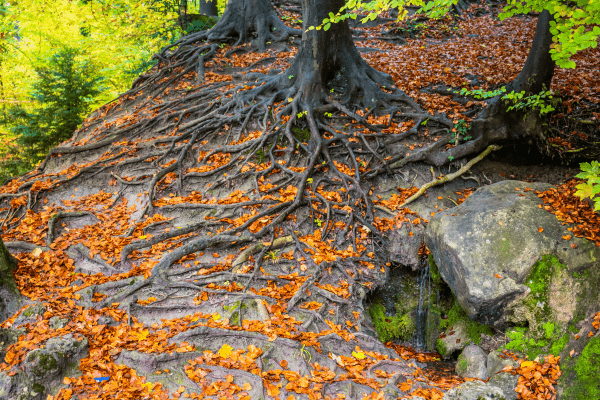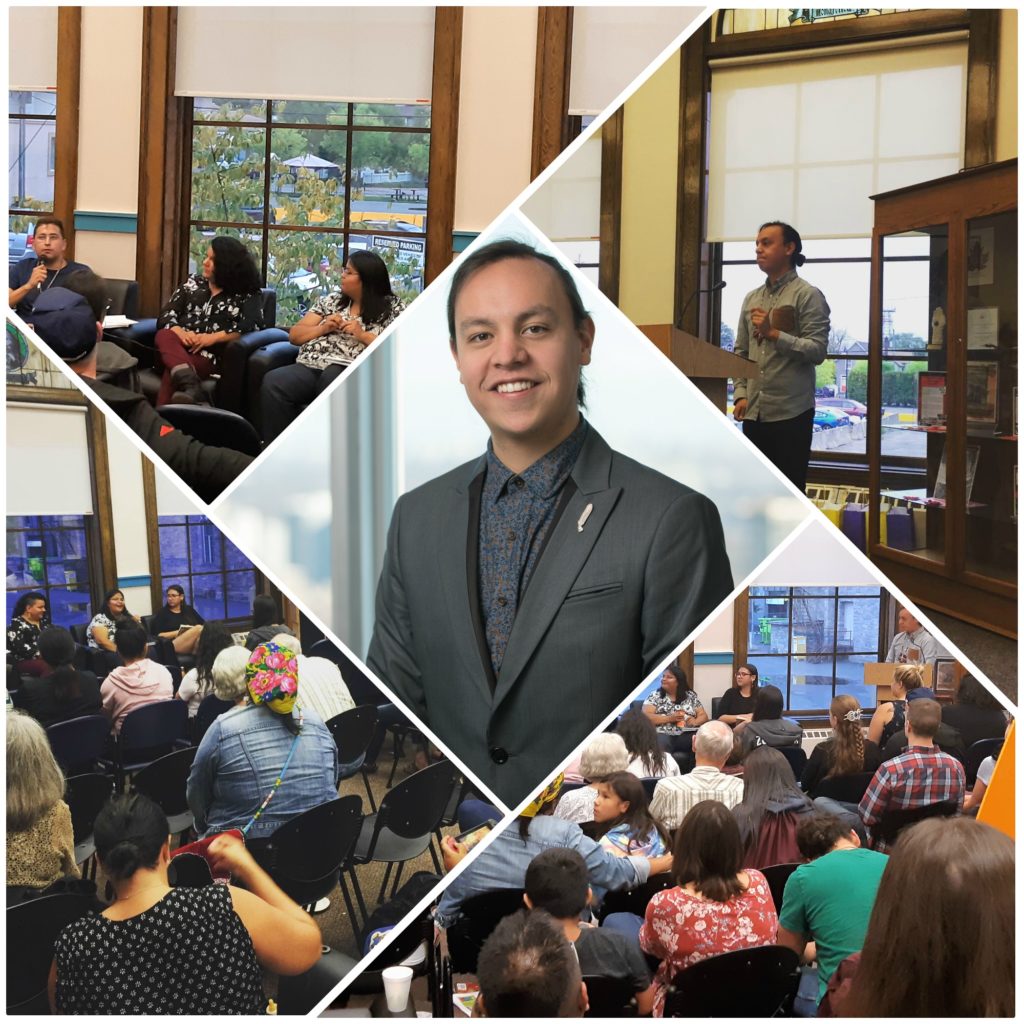Learn about the benefits of constructing a multi-year internship from a MLIS student's perspective.

“Unapologetically Nêhiyaw”: A conversation with Max FineDay
Something I was raised to do was to be unapologetically nêhiyaw in every place that I am, in every place that I go, and every place that I travel.
Max FineDay
Back in September, the Thunder Bay Public Library co-hosted an event with Canadian Roots Exchange, a national youth organization that works towards reconciliation in our lifetime. CRE’s Executive Director, Max FineDay, led a panel discussion of local Indigenous activists and artists, Ardelle Sagutcheway, Steph MacLaurin, Beau Boucher, and Shelby Gagnon.
After that event, I sat down with Max to talk about reconciliation, racism, Indigenous identity, and Indigenous revitalization. In particular, we talked about how ceremony influences our work. Max shared that,
Something I think Canadians don’t understand about Native people, is that … Everything about us is ceremony, everything about us is spiritual, everything about us is about our connection to mâmawi-ohtâwîmâw, our kind and loving Creator.
We’re not like the rest of Canada, where we sort of like leave our ceremony or our religious beliefs at the door, or leave it at home. This isn’t a belief system. This isn’t a religion. This is everything in who we are, everything in the way we interact. It is how Indigenous people do everything.
So right before I got on to record this podcast with you, I smudged in my office. And I didn’t ask permission to smudge, I just did it.

As Max observed, historically Indigenous ceremonies have been prohibited and he connected the underlying assimilationist policies to the dire statistics that reflect the lives of Indigenous people today.
We’re told so often by our Knowledge Keepers, that we see Indigenous people fill the jails, we see Indigenous youth fill graveyards, we see Indigenous young people fulfilling every negative statistic in this country that is available to us. And it’s not because we are genetically predisposed to dying young or not genetically predisposed to stealing a bike or these other sorts of things.
It’s because we have young people who are walking around with beautiful brown skin, skin that is the colour of the earth, and what a gift that is. But they don’t know who they are, they don’t know where they come from, and they don’t have that connection to Creator.
He then bridged the disheartening statistics of Indigenous communities with the work of institutions such as libraries.
And if your space, if your workplace, if your strategic initiative does not centre ceremony or does not make space for ceremony, if you ask people to go outside to smudge, that’s a continuation of that violence that Indigenous people, particularly young people, have had to suffer or endure to try and reclaim those sorts of things.
Take a listen to the podcast to hear the whole conversation and to learn about how you and your library can help achieve reconciliation in our lifetime.
“Unapologetically Nêhiyaw” transcript final
Photo by Periklis Lolis on Unsplash
Music: Pure Water by Meydan (Free Music Archive)
Max FineDay is a nêhiyaw napew from the Sweetgrass First Nation in Saskatchewan, Treaty 6 Territory. He is currently serving as Executive Director of Canadian Roots Exchange, a recognized leader in delivering reconciliation programming to Indigenous and non-Indigenous youth across the country.
Samantha Martin-Bird is anishinaabe, of Peguis First Nation in Treaty 1 Territory. She currently works as a Community Hub Librarian for the Thunder Bay Public Library on the traditional territory of Fort William First Nation, signatory to the Robinson-Superior Treaty of 1850.


